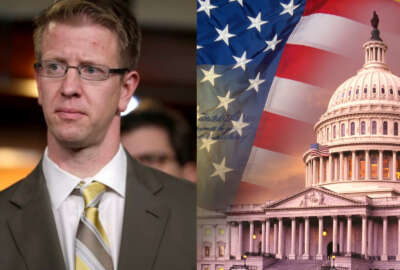DLA supervisor blames Italy for harassment
Excesses in the realm of the libidinal may stem from the influence of decadent European culture. That doesn\'t make it right. Attorney Bill Bransford explains.
wfedstaff | June 3, 2015 4:34 pm
By Suzanne Kubota
Senior Internet Editor
FederalNewsRadio.com
A supervisor has been fired for being too touchy-feely with workers at the Defense Logistics Agency.
A review using the Douglas Factors found that his actions undermined his ability to supervise.
His defense? That he used to live in Italy, where, he says, touchy-feely behavior is part of the culture.
Bill Bransford, partner at Shaw Bransford and Roth, told Federal News Radio, “this is just an old-fashioned sexual harassment case,” but rare, in its way.
“This kind of conduct used to occur with some regularity in a lot of workplaces,” said Bransford, “and many employers have conducted some pretty effective sexual harassment training, and it really doesn’t happen as much anymore.”
Bransford said there’s “really no excuse” for that kind of behavior, but the recent case, Smiley v. Department of Defense, serves as a good reminder of the Douglas Factors, how they came into being and how they are meant to be used.
The Douglas Factors “sort of like the Miranda warnings,” said Bransford, are named for a case. Douglas worked for the VA “back in the early 1980s” in which the MSPB decided it had the right to review an agency’s choice of penalty in a disciplinary case.
“So they came up with these 12 factors and said the agency should” weigh and balance them in deciding what an appropriate penalty is. In order to make sure the penalty is appropriate for the misconduct. They include the “nature and seriousness of the offense, lack of prior discipline, performance record, how long you’ve been on the job, whether other employees have received the same treatment for similar behavior,” among other mitigating circumstances.
In the Smiley case, as a mitigating circumstance, said Bransford, Smiley argued “that he had lived in Italy for 10 years where people were much more touchy-feely and that it just developed this second nature habit where this is the way he acted toward other people,” and that he was working to correct that. Smiley said they should excuse his behavior. The MSPB, said Bransford, “was just not buying it. They said ‘sorry, you have to have more control over yourself than THAT.'”
A second Douglas Factor Smiley argued was that other supervisors had been guilty of sexual harassment and had not been fired. The MSPB, said Bransford, found that those other supervisors had engaged in less serious behavior “and that Mr. Smiley had done it with more than one person. It was repeated and with multiple victims, and thought it was more serious.”
Copyright © 2024 Federal News Network. All rights reserved. This website is not intended for users located within the European Economic Area.





